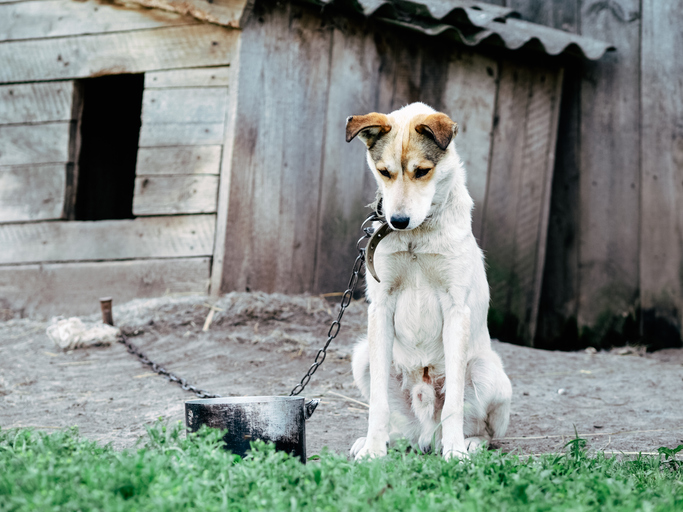In recent years, there has been an escalating awareness of animal welfare, leading to a pressing need for dedicated professionals who can combat the abhorrent reality of animal cruelty. Among these essential positions is that of an animal cruelty investigator. This role is vital not only in enforcing the law but also in fostering compassion and ethical treatment towards all sentient beings. Understanding the requirements to become an animal cruelty investigator can illuminate potential pathways and inspire a more profound appreciation for animal advocacy.
Understanding the Role of an Animal Cruelty Investigator
The primary function of an animal cruelty investigator is to examine allegations of abuse or neglect, collect evidence, and collaborate with law enforcement agencies to prosecute offenders. These investigators are often tasked with assessing both the physical and psychological condition of animals involved in cruelty cases. Their responsibilities are multifaceted, navigating the domains of law enforcement, social work, and, at times, legal proceedings.
Educational Background: A Strong Foundation
To embark on the journey towards becoming an animal cruelty investigator, a solid educational background is essential. Most positions require at least a high school diploma, although a bachelor’s degree in a relevant field such as criminology, animal science, veterinary technology, or social work is often preferred. An academic understanding of animal behavior, welfare standards, and legal frameworks surrounding animal rights is invaluable. Advanced education can provide candidates with critical analytical skills and insights into ethical considerations regarding animal life.
Moreover, aspiring investigators should seek opportunities to specialize in animal law. This niche area emphasizes the intricacies of regulations and policies governing animal protection, serving as an essential foundation for effective investigation practices. Courses on animal rights legislation, for example, can offer a nuanced understanding of the legal ramifications associated with cruelty cases.
Gaining Relevant Experience
Beyond formal education, practical experience in related fields can be immensely beneficial. Many successful animal cruelty investigators begin their careers through roles in animal care or welfare organizations. Volunteering at shelters, participating in rescue operations, or working with veterinarians can provide critical exposure to animal handling and the emotional toll faced by abused animals.
Internships with animal rights advocacy groups or governmental agencies that focus on animal welfare can also serve as an important stepping stone. Such experiences allow budding investigators to grasp the complexity of cruelty cases, from initial reports to detailed investigations. They learn firsthand the importance of meticulous documentation, evidence collection, and the ethical treatment of living beings.
Skills and Attributes: The Investigator’s Toolkit
Successful animal cruelty investigators possess a unique array of skills and attributes. Strong observational skills are paramount; the ability to notice subtle signs of distress or neglect is often what brings attention to a case in the first place. Furthermore, critical thinking and problem-solving capabilities enable investigators to evaluate complex situations and devise appropriate interventions.
Excellent communication skills are equally vital. Investigators must frequently liaise with law enforcement, animal control officers, and the public. The capacity to convey sensitive information with empathy fosters trust and cooperation in sometimes fraught circumstances. Additionally, emotional resilience and compassion are essential. The nature of the work can be harrowing, and investigators must be prepared to encounter disturbing situations while maintaining their commitment to advocating for vulnerable animals.
Certification and Training: Formalizing Expertise
Professional certification can enhance an investigator’s credentials and bolster their authority in the field. Organizations such as the National Animal Control Association (NACA) offer courses and certifications specifically tailored for animal cruelty investigations. Completing these programs often requires a combination of theoretical knowledge and practical application, further refining the skills necessary for effective investigation.
Ongoing training is also crucial. The field of animal cruelty investigation is ever-evolving, shaped by societal views on animal rights and advancements in investigative techniques. Attending workshops, seminars, and conferences allows investigators to stay abreast of new methodologies and legal developments, ensuring they remain effective advocates for animals.
Pathways to Employment
Prospective animal cruelty investigators may find employment across various sectors. Local and state law enforcement agencies often hire them as part of dedicated animal control units. Non-profit organizations and animal welfare associations also recruit investigators to monitor compliance with animal cruelty laws and advocate for legislative changes. Some professionals choose to work independently as consultants, assisting with investigations or offering expert testimony in court. Such versatility underlines the critical demand for skilled investigators who can engage with diverse stakeholders in the fight against animal cruelty.
The Importance of Advocacy
The plight of abused animals remains a significant issue, and the role of animal cruelty investigators is pivotal in instigating change. Their work not only seeks justice for victims but also raises awareness of the urgent need for reform in animal welfare policies. By uncovering and addressing the hidden atrocities inflicted upon animals, these investigators foster a cultural shift towards greater compassion and ethics in the treatment of all beings.
In conclusion, a career as an animal cruelty investigator requires a delicate balance of education, experience, skills, and advocacy. It is a noble pursuit, one that invites individuals to engage deeply with the ethical issues surrounding animal treatment. For those who are passionate about animal welfare, this path promises to be fulfilling, offering a chance to make a tangible difference in the lives of countless creatures. As society’s perspectives shift towards recognizing the intrinsic value of all living beings, the role of the animal cruelty investigator becomes more crucial than ever.








